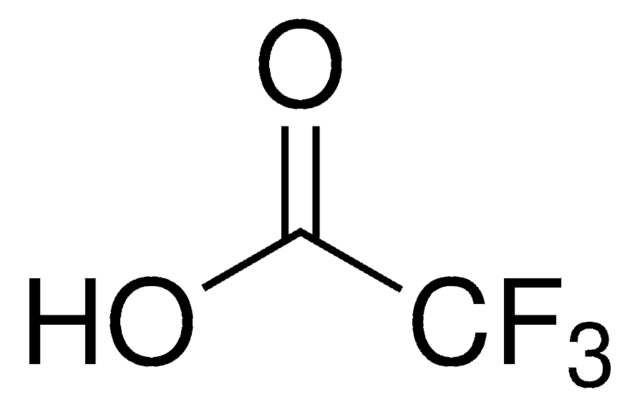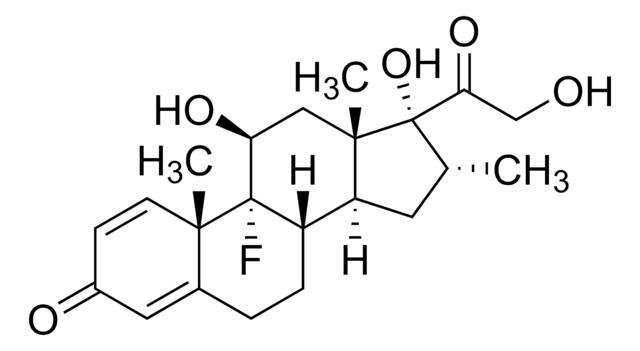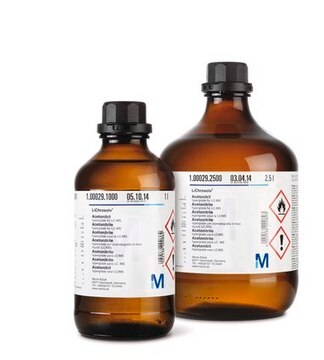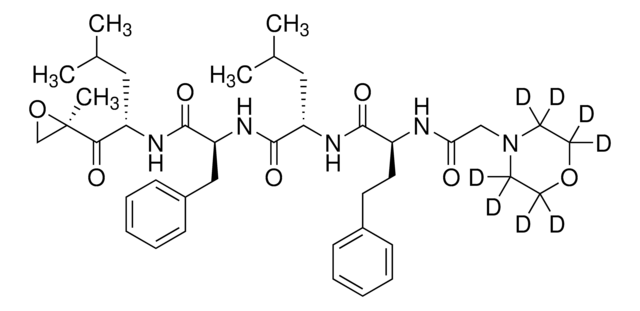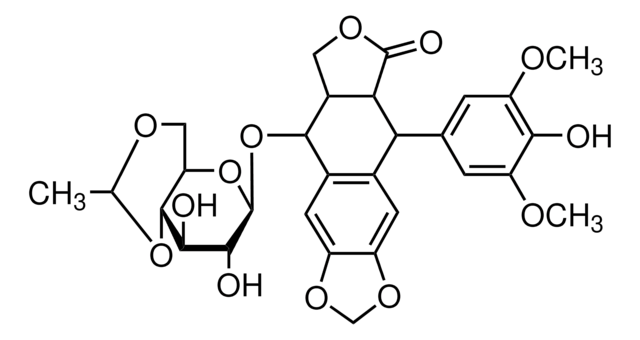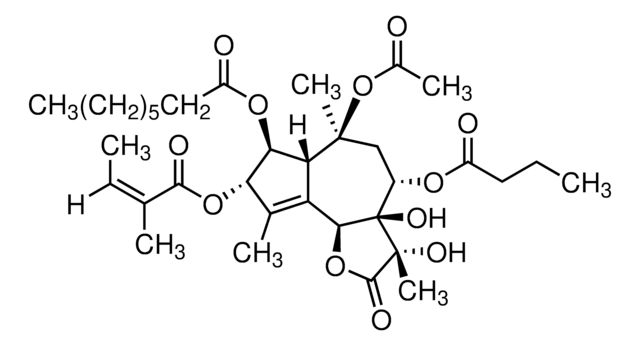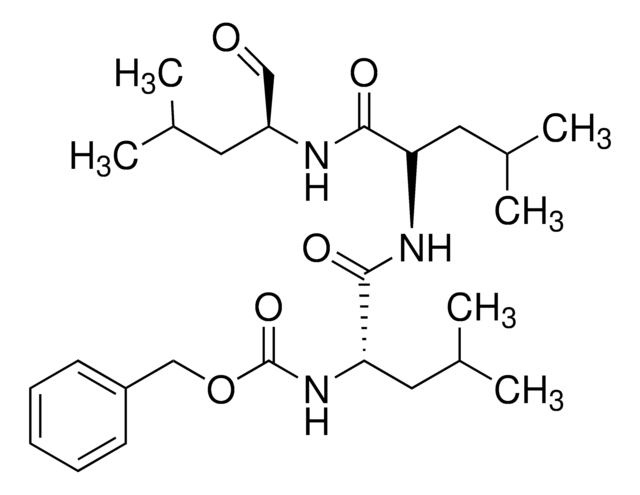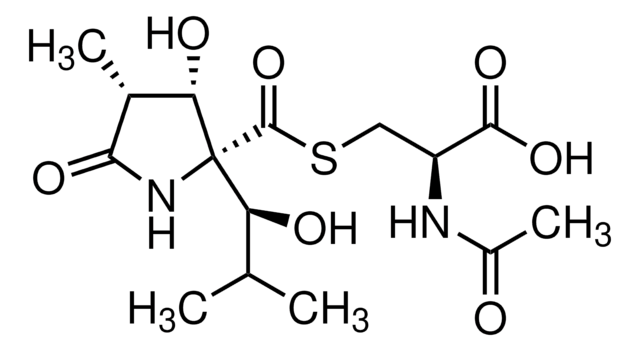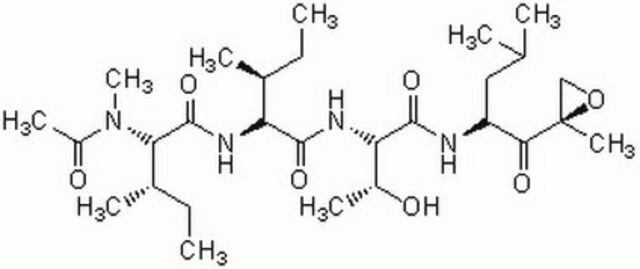5.04314
Bortezomib
Synonym(s):
Bortezomib, (R)-3-Methyl-1-((S)-3-phenyl-2-(pyrazine-2-carboxamido)propanamido)butylboronic acid, BTZ, LDP-341, LDP341, MG341, MLN-341, MLN341, PS341, Proteasome Inhibitor XXII, PS-341, MG-341, Pyz-Phe-boroLeu, BTZ, LDP-341, LDP341, MG341, MLN-341, MLN341, PS341, Proteasome Inhibitor XXII, PS-341, MG-341, Pyz-Phe-boroLeu, (R)-3-Methyl-1-((S)-3-phenyl-2-(pyrazine-2-carboxamido)propanamido)butylboronic acid
About This Item
Recommended Products
assay
≥98% (LC/MS)
Quality Level
form
solid
manufacturer/tradename
Calbiochem®
storage condition
OK to freeze
desiccated (hygroscopic)
protect from light
color
off-white
solubility
DMSO: 100 mg/mL
ethanol: 2 mg/mL (with sonication)
storage temp.
−20°C
InChI
1S/C19H25BN4O4/c1-13(2)10-17(20(27)28)24-18(25)15(11-14-6-4-3-5-7-14)23-19(26)16-12-21-8-9-22-16/h3-9,12-13,15,17,27-28H,10-11H2,1-2H3,(H,23,26)(H,24,25)/t15-,17-/m0/s1
InChI key
GXJABQQUPOEUTA-RDJZCZTQSA-N
General description
Biochem/physiol Actions
Packaging
Warning
Preparation Note
Reconstitution
Other Notes
Tamatani, T., et al. 2013. Int. J. Oncol.42, 935.
Beck, P., et al. 2012. J. Biol. Chem.393, 1101.
Fang, H.T., et al. 2012. Proc. Natl. Acad. Sci. USA.109, 2521.
Chen, D., et al. 2011. Curr. Cancer Drug Targets11, 239.
Demo, S.D., et al. 2007. Cancer Res.67, 6383.
Adams, J., et al. 1999. Cancer Res.59, 2615.
Teicher, B.A., et al. 1999. Clin. Cancer Res.5, 2638.
Adams, J., et al. 1998. Bioorg. Med. Chem. Lett.8, 333.
Legal Information
Storage Class
11 - Combustible Solids
wgk_germany
WGK 3
flash_point_f
Not applicable
flash_point_c
Not applicable
Certificates of Analysis (COA)
Search for Certificates of Analysis (COA) by entering the products Lot/Batch Number. Lot and Batch Numbers can be found on a product’s label following the words ‘Lot’ or ‘Batch’.
Already Own This Product?
Find documentation for the products that you have recently purchased in the Document Library.
Customers Also Viewed
Our team of scientists has experience in all areas of research including Life Science, Material Science, Chemical Synthesis, Chromatography, Analytical and many others.
Contact Technical Service